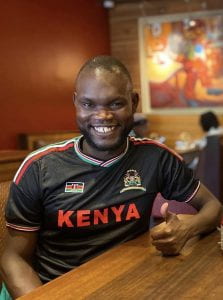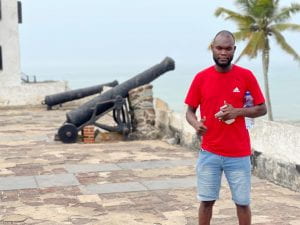As they say, all good things must come to an end. As my short-lived stay in Ghana finally came
to an end, I was engulfed with a variety of mixed emotions. In the span of one month, I had
nothing but the best of times and made great memories in the land of Gold. Suddenly it was time to fly to my native country Kenya. It was my first time stepping into the magical country in four years. There’s definitely no doubt that both nations now hold special places in my heart.
But how do these two renowned African countries compare and contrast historically, politically and culturally?
For starters, both nations were colonized by the British. Ghana was the first African nation to
achieve independence under the leadership of Kwame Nkrumah, while Kenya secured self-rule in 1963, under the leadership of Jomo Kenyatta. Kenyan guerrilla fighters had to wage bloody uprisings that finally forced the British to come to the negotiating table before granting the country its independence, while Ghana’s quest for self-governance was largely nonviolent, inspired by Mahatma Gandhi’s nonviolent campaigns of civil disobedience.
When it comes to geographic size, Kenya is approximately 88% larger than Ghana. As of 2021,
Kenya’s population stood at 55 million while the population of Ghana stood at 32 million.
Statistics also reveal that Kenya’s capital Nairobi covers approximately 268.7 square miles
compared to Accra, which covers 87.13 square miles.

In terms of stability, Ghana has been deemed as a beacon of hope, democracy and peace in
Africa. However, there are several commonalities and differences between both nations as far as this point is concerned. In yesteryears, Ghana endured several coup d’états coupled up with decades of instability and military rule. Kenya, on the other hand, historically enjoyed more peace and stability, apart from one failed coup attempt in 1982, which was quickly and
successfully quelled with the perpetrators brought to book. The East African nation has been a relative haven for peace and stability in an Eastern African region that has had/continues to go through massive turmoil in countries such as Somalia, Rwanda, Burundi, Ethiopia, Sudan, andUganda. As an outcome of these regional conflicts, Kenya continues to play host to the largest refugee camps in the world, Kakuma and Dadaab. Ghana also hosts refugees from Togo and various asylum seekers.
The Gold Coast has had peaceful transitions of power for the last two decades, compared to
Kenya, which has had its fair share of political impasse and election violence, mostly pitting the dominant Kikuyu tribe against the Luo. The differences between the two tribes not only confirms Kenya’s political split along ethnic lines but can also be traced back in the late 60’s when its first President, Jomo Kenyatta, a Kikuyu who largely favored the West and harbored capitalistic ideals, fired and later imprisoned his then Vice President Jaramogi Oginga Odinga, a Luo, who tended to lean towards the East and its communist ideals. While the two leaders are long dead and gone, their children, Kenya’s current president Uhuru Kenyatta and opposition leader Raila Odinga have to this day kept the historically bitter feud alive.
Other factors that contribute to the various tribal divisions in the country also stem from: cultural differences; the divide and rule tactic applied by the British during the extended colonial period, which tended to pit different tribes against each other; historical injustices; and political interests. Nevertheless, the country is largely peaceful with intermarriages between the Kikuyu and Luo among the highest recorded in the nation.
Both nations can boast of being tourist hot spots in the African continent. Kenya is a top rated
East African travel destination. Its tourist destinations include the Masai Mara national reserve, Tsavo National Park, Amboseli National Park, Hells Gate National Park, Mt. Kenya, Lake Victoria, Lake Nakuru, Lake Naivasha and the coastal towns of Mombasa, Lamu and Malindi, which have some of the most pristine beaches in the world. Ghana’s to do in list must also include a visit to its capital Accra, Kumasi city, Artisan’s Alliance Gallery, Cape Coast, Kakum National Park, Mole National Park, Elmina Castle, Lake Bosumtwe and the Volta Region.

As far as sports is concerned, Ghana boasts of producing renowned soccer stars and boxers.
These are the country’s’ most popular sports. Kenya, on the other hand, is internationally
renowned for producing record breaking athletes in track, rugby, cricket and swimming.
While it was a bit hard to measure the vibrancy of the nightlife due to lower turnout in Accra
clubs with Covid pandemic raging, I noticed, however, that Ghanaian DJs mostly featured West African music in their playlists. There were nights I didn’t hear a single Kenyan or East African song played in the discotheques. This is a huge departure from the modus operandi of most Kenyan night clubs, which mostly feature Nigerian or Ghanaian music in their radio or clubs. In fact, some Ghanaian/Nigerian musicians would easily fill huge concert venues in Kenya, a fete some of the most popular Kenyan artists would find so hard to achieve. However, Caribbean music including Dancehall and American music were just as popular in Ghana as they are in Kenya.
Ghana has over 100 tribes compared to Kenya which has around 47 tribes. Twi, widely spoken
by most people in Ghana, is the equivalent of Swahili in Kenya. Swahili is, however, much more
widespread than Twi because it’s not only spoken in Kenya, but also in Zanzibar, Tanzania,
Uganda, Rwanda, Congo, Zambia, South Sudan, parts of Mozambique, and South
Africa. Both nations use English as their official language.
Nante ye (Goodbye in Twi) Ghana! Do ‘stay sweet’ and ‘stay Gold’ till we meet again.
was lit reading